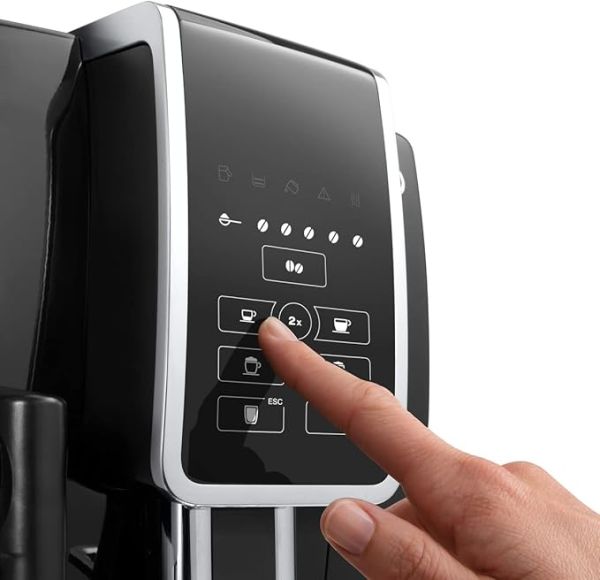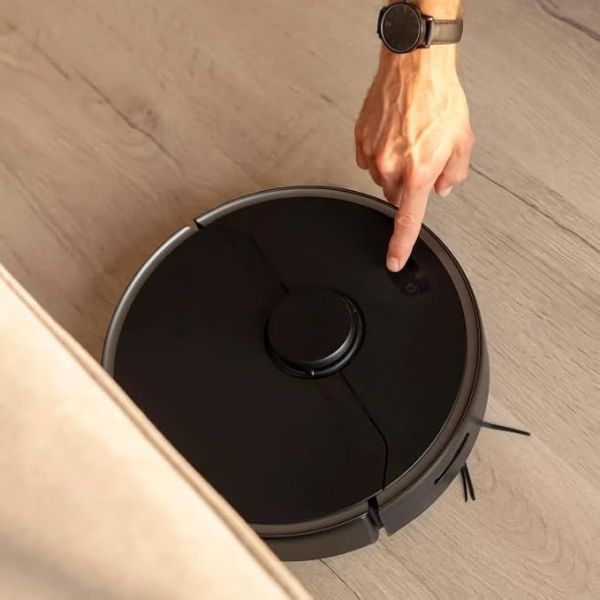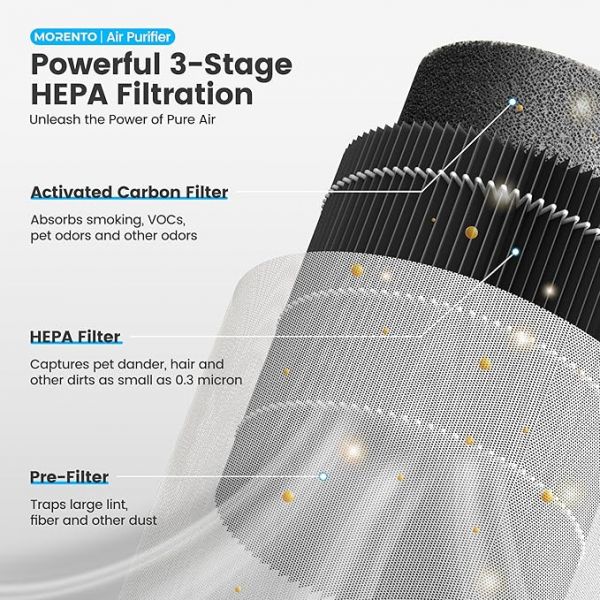Smart Refrigerators: Features That Save Energy and Money

- Table of Contents
- 1. What Is a Smart Refrigerator?
- 2. How Smart Technology Reduces Energy Consumption
- 3. Benefits of Using a Smart Refrigerator
- 4. Key Energy-Saving Features to Look For
- 1. AI-Powered Temperature Control
- 2. Multi-Zone Cooling
- 3. Smart Energy Dashboards
- 4. Adaptive Defrosting Systems
- 5. Advanced Insulation Technology
- 5. Best Smart Refrigerator Models Comparison
- 6. AI and Machine Learning in Smart Cooling
- 7. Multi-Zone Cooling and Humidity Control
- 8. Energy Monitoring and Optimization
- 9. Smart Home Integration
- 10. Tips to Save Money with Smart Refrigerators
- 11. Maintenance and Longevity
- 12. Final Thoughts
Modern kitchens have evolved, and the refrigerator has become the centerpiece of smart home innovation. Today’s smart refrigerators do far more than keep food cold — they are designed to save energy, reduce food waste, lower utility bills, and make everyday life more efficient.
In this comprehensive guide, we’ll explore the most important features of smart refrigerators, how they help homeowners cut electricity costs, what technologies improve efficiency, and how to choose the right model for your needs.
Table of Contents
-
What Is a Smart Refrigerator?
-
How Smart Technology Reduces Energy Consumption
-
Benefits of Using a Smart Refrigerator
-
Key Energy-Saving Features to Look For
-
Best Smart Refrigerator Models Comparison
-
AI and Machine Learning in Smart Cooling
-
Multi-Zone Cooling and Humidity Control
-
Energy Monitoring and Optimization
-
Smart Home Integration
-
Tips to Save Money with Smart Refrigerators
-
Maintenance and Longevity
-
Final Thoughts
1. What Is a Smart Refrigerator?
A smart refrigerator is an appliance equipped with Wi-Fi connectivity, sensors, and AI-powered controls that allow you to manage cooling settings, monitor energy usage, and even track your groceries from your smartphone.
Core capabilities include:
-
Remote temperature control via app
-
Energy consumption monitoring
-
Food inventory management
-
Voice assistant integration
-
Maintenance alerts
These features work together to make food preservation smarter, greener, and more cost-effective.
2. How Smart Technology Reduces Energy Consumption
Smart refrigerators use intelligent sensors and machine learning algorithms to optimize cooling cycles. Unlike traditional fridges that run continuously, these devices:
-
Adjust compressor speeds based on door openings
-
Detect when compartments are empty or full
-
Schedule cooling during off-peak energy hours
-
Reduce unnecessary defrosting
| Technology | How It Works | Energy Savings |
|---|---|---|
| AI Cooling | Learns usage patterns | 20–30% |
| Smart Defrosting | Activates only when needed | 10–15% |
| Door Sensors | Pauses cooling during openings | 5–7% |
| Load Detection | Adjusts based on food levels | 8–12% |
By optimizing every cycle, smart refrigerators lower annual electricity usage significantly.
3. Benefits of Using a Smart Refrigerator
Investing in a smart refrigerator delivers benefits beyond energy efficiency:
| Benefit | Description | Savings/Impact |
|---|---|---|
| Lower Energy Bills | Uses advanced sensors to minimize consumption | Up to 35% less cost |
| Better Food Preservation | Maintains optimal temperature & humidity | Reduces spoilage |
| Convenience | App controls, voice commands, and alerts | Saves time |
| Eco-Friendly | Decreases carbon footprint | Contributes to sustainability |
| Cost Savings | Less food waste, optimized power | $150–$300/year |
4. Key Energy-Saving Features to Look For
Smart refrigerators come with several technologies designed to improve efficiency and lower costs. The following features have the biggest impact:
1. AI-Powered Temperature Control
Uses algorithms to analyze usage and automatically adjusts cooling.
2. Multi-Zone Cooling
Independent compartments let you customize temperatures, preventing unnecessary energy use.
3. Smart Energy Dashboards
View and track electricity usage in real time via smartphone apps.
4. Adaptive Defrosting Systems
Defrosts only when necessary, unlike traditional time-based cycles.
5. Advanced Insulation Technology
Keeps cold air inside longer, reducing compressor workload.
| Feature | Purpose | Energy Savings |
|---|---|---|
| AI Temp Control | Adjusts cooling cycles | 20–30% |
| Multi-Zone Cooling | Focuses energy where needed | 15–25% |
| Smart Dashboards | Tracks and optimizes usage | 5–10% |
| Adaptive Defrost | Saves power during cycles | 10–15% |
| Advanced Insulation | Improves efficiency | 7–12% |
5. Best Smart Refrigerator Models Comparison
| Model | Capacity | Energy Use | Special Features | Best For |
|---|---|---|---|---|
| Samsung Family Hub | 26 cu. ft. | 500 kWh/year | AI cooling, touchscreen, food tracking | Large families |
| LG InstaView ThinQ | 27 cu. ft. | 520 kWh/year | Door-in-Door, energy analytics | Smart home users |
| Whirlpool SmartCool | 24 cu. ft. | 490 kWh/year | Auto sensors, humidity control | Small kitchens |
| GE Profile SmartCool | 28 cu. ft. | 540 kWh/year | Multi-zone cooling, Alexa support | Tech enthusiasts |
| Bosch HomeConnect | 25 cu. ft. | 480 kWh/year | Silent cooling, advanced insulation | Energy-conscious users |
6. AI and Machine Learning in Smart Cooling
One of the biggest advancements in modern refrigerators is AI integration. Using real-time data, these systems:
-
Study your food storage habits
-
Predict cooling needs
-
Optimize compressor speeds
-
Prevent unnecessary energy waste
Example: If your fridge notices reduced usage at night, it will automatically switch to eco-mode and consume less electricity.
7. Multi-Zone Cooling and Humidity Control
Traditional fridges cool everything equally, but smart refrigerators allow independent control for each section:
-
Keep meat colder
-
Store vegetables at higher humidity
-
Save energy by focusing on active compartments
| Zone | Recommended Temp | Purpose |
|---|---|---|
| Freezer | -18°C / 0°F | Preserves frozen goods |
| Fresh Zone | 0–4°C / 32–39°F | Keeps meat & dairy fresh |
| Vegetable Bin | 4–7°C / 39–45°F | Maintains produce quality |
This targeted cooling system ensures energy is spent only where needed.
8. Energy Monitoring and Optimization
Most smart refrigerators provide real-time energy analytics. You can check:
-
Current energy usage
-
Peak power hours
-
Estimated monthly costs
Some models integrate with home energy management systems, allowing the refrigerator to auto-adjust cycles during cheaper electricity periods.
9. Smart Home Integration
Smart refrigerators seamlessly connect with other home systems:
-
Voice Assistants → Control cooling via Alexa or Google Assistant
-
Lighting & HVAC → Syncs cooling with indoor temperature
-
Grocery Apps → Tracks inventory and automates shopping lists
Example Scenario:
If your fridge detects low milk levels, it sends a notification to your phone, which can sync with a delivery app to reorder automatically.
10. Tips to Save Money with Smart Refrigerators
| Tip | How It Helps | Potential Savings/Year |
|---|---|---|
| Enable Eco Mode | Uses less energy in low-demand hours | $40–$70 |
| Use Energy Dashboards | Monitor real-time usage | $20–$40 |
| Clean Condenser Coils | Keeps compressors efficient | $30–$60 |
| Avoid Overloading Shelves | Improves airflow | $25–$50 |
| Check Door Seals | Prevents cold air leaks | $15–$30 |
Pro Tip: Set freezer and fridge temperatures according to manufacturer recommendations to avoid excessive energy consumption.
11. Maintenance and Longevity
Proper care ensures maximum energy efficiency and extends your refrigerator’s lifespan.
| Task | Frequency | Benefit |
|---|---|---|
| Clean condenser coils | Every 6 months | Better efficiency |
| Replace water filters | Every 6 months | Clean water & ice |
| Check door seals | Every 3 months | Prevents energy loss |
| Update firmware | Quarterly | Access to latest features |
| Defrost freezer | When needed | Prevents ice buildup |
Smart refrigerators also send automatic maintenance alerts, ensuring timely action without guesswork.
12. Final Thoughts
Smart refrigerators are game-changing appliances for households seeking energy efficiency, cost savings, and modern convenience. With features like AI-powered cooling, multi-zone temperature control, energy analytics, and smart home integration, they make managing your kitchen easier while reducing electricity bills.
By investing in a smart refrigerator, you not only save money but also contribute to a more sustainable and eco-friendly lifestyle.








